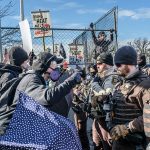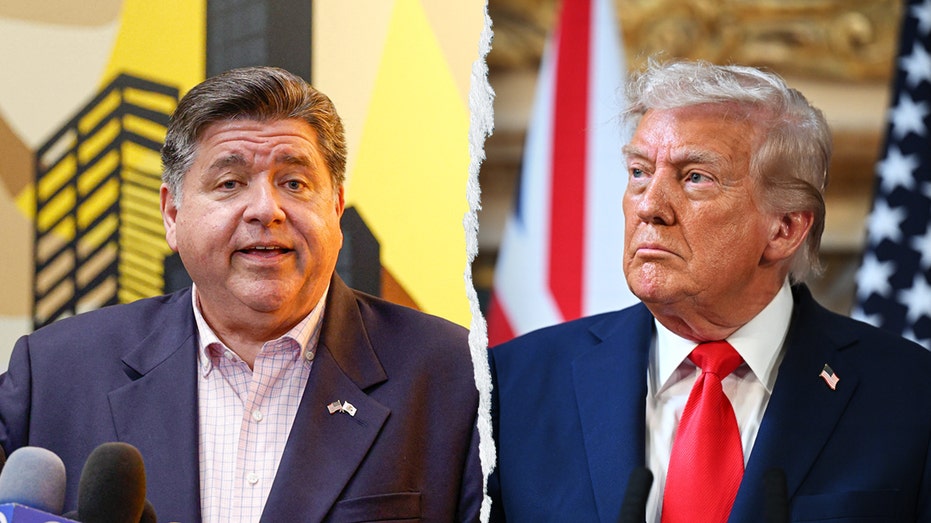The Trump administration has urged the U.S. Supreme Court to allow the deployment of the National Guard in Chicago to protect federal personnel and federal property amid protests over immigration enforcement in the area.
Solicitor General D. John Sauer, Trump’s top Supreme Court lawyer, urged the justices to step in immediately after a judge ruled last week that National Guard troops sent to Illinois by President Donald Trump to combat crime can remain in the state but can’t patrol or deploy to protect federal property. A federal appeals court had refused to put the judge’s order on hold.
U.S. District Judge April Perry said she found no convincing evidence that a “danger of rebellion” exists in Illinois amid Trump’s immigration enforcement push.
TRUMP’S NATIONAL GUARD TROOPS CAN STAY IN ILLINOIS BUT FEDERAL JUDGE BLOCKS DEPLOYMENT
Sauer wrote in the emergency filing that the judge’s ruling “intrudes on the president’s authority and needlessly puts federal personnel and property at risk.”
The Trump administration argues in its filing that the case represents a “disturbing and recurring pattern” in which federal officers enforcing immigration law are met with “prolonged, coordinated and violent resistance” that threatens their safety.
“Federal agents are forced to desperately scramble to protect themselves and federal property, allocating resources away from their law enforcement mission to conduct protective operations instead,” the filing states.
“Receiving tepid support from local forces, they are often left to fend for themselves in the face of violent, hostile mobs. Confronted with intolerable risks of harm to federal agents and coordinated, violent opposition to the enforcement of federal law, the president lawfully determines that he is unable to enforce the laws of the United States with the regular forces and calls up the National Guard to defend federal personnel, property and functions in the face of ongoing violence.”
The Supreme Court has asked for the opposition’s response to the Trump administration’s emergency filing by 5 p.m. on Monday. The court is then expected to offer the administration to file a reply.
The plea to the nation’s top court comes as 11 protesters were arrested Friday outside a U.S. Immigration and Customs Enforcement (ICE) facility in Broadview, a west Chicago suburb that has become a frequent flashpoint for demonstrations against federal agents in recent weeks.
The filing also further escalates Trump’s standoff with Illinois Gov. JB Pritzker and Chicago Mayor Brandon Johnson, who have staunchly opposed deploying troops. They have called any deployment unconstitutional and insisted the city is not facing the kind of crime crisis the White House claims.
Pritzker fired back at the filing on X, accusing Trump of trying to “invade Illinois with troops” and vowing to defend the state’s sovereignty.
“Militarizing our communities against their will is not only un-American but also leads us down a dangerous path for our democracy,” Pritzker wrote.
“What will come next?”
Trump has already deployed the National Guard to Los Angeles, Washington D.C., and Memphis, Tenn., to help curb violent crime. He has said the moves caused crime to plummet in those areas.
Earlier this week, the president floated the idea of invoking the Insurrection Act to tackle violent crime in Chicago and urged Pritzker to “beg for help” from the federal government.
“I could use it if I wanted to. I could use it — that’s a very simple answer. I’m allowed to use the Insurrection Act,” Trump said, after the question was put to him by a reporter aboard Air Force One.
The Insurrection Act of 1807 gives the president authority to deploy active-duty military or federalized National Guard troops inside the country in limited circumstances, such as to suppress civil disorder, rebellion or obstruction of federal law. It has been invoked about 30 times by roughly 10 presidents, most recently by George H. W. Bush during the 1992 Los Angeles riots, according to The Associated Press.
But on Monday, Trump said he didn’t have to “go there yet” because his administration is “winning on appeal.”
CLICK HERE TO GET THE FOX NEWS APP
“You know, we lose with radical-left judges at the lower level, but we’re winning on appeal. So we’ll see what happens,” Trump said.
The conservative-dominated court has handed Trump repeated victories in emergency appeals since he took office in January, after lower courts have ruled against him and often over the objection of the three liberal justices.
The court has allowed Trump to ban transgender people from the military, claw back billions of dollars of congressionally approved federal spending, move aggressively against illegal immigrants and fire the Senate-confirmed leaders of independent federal agencies.
The Associated Press contributed to this report.
























